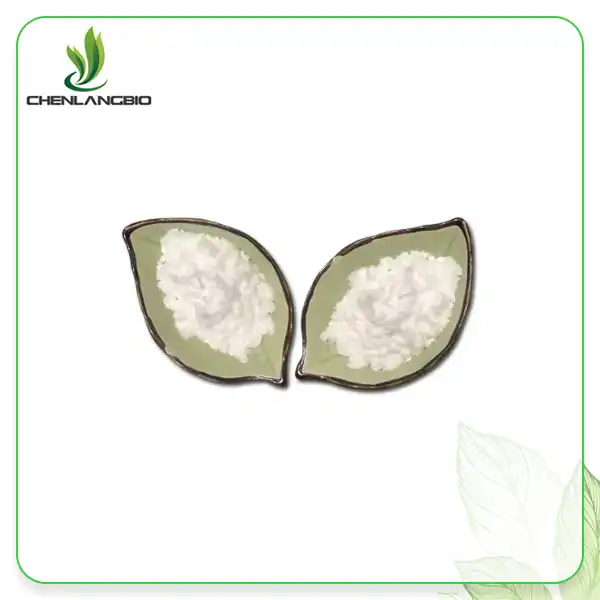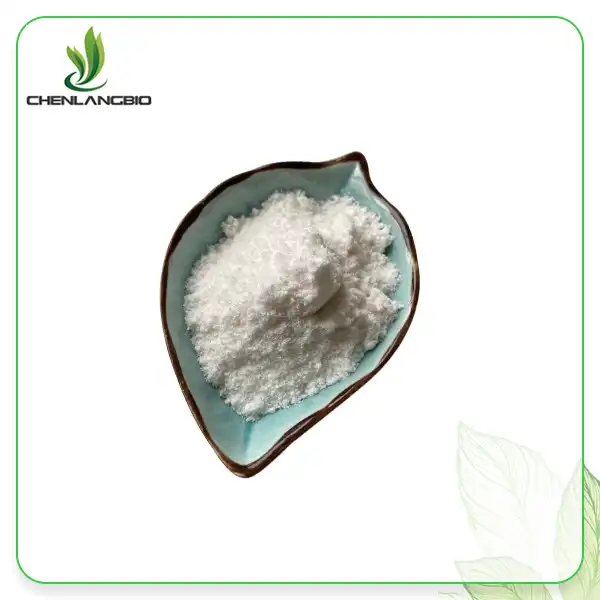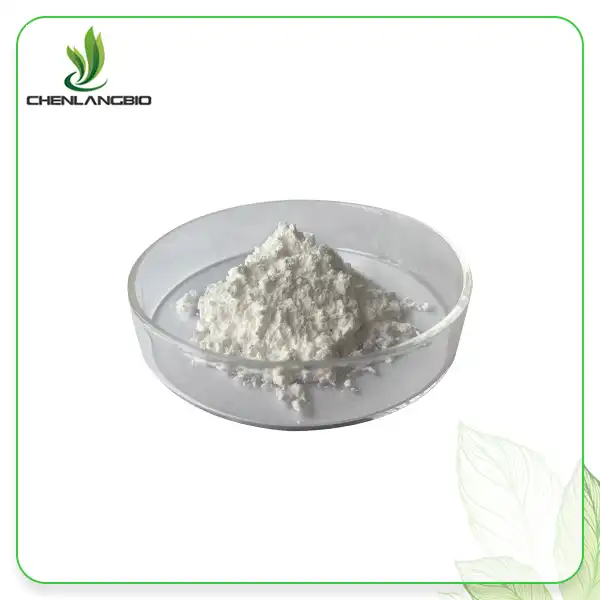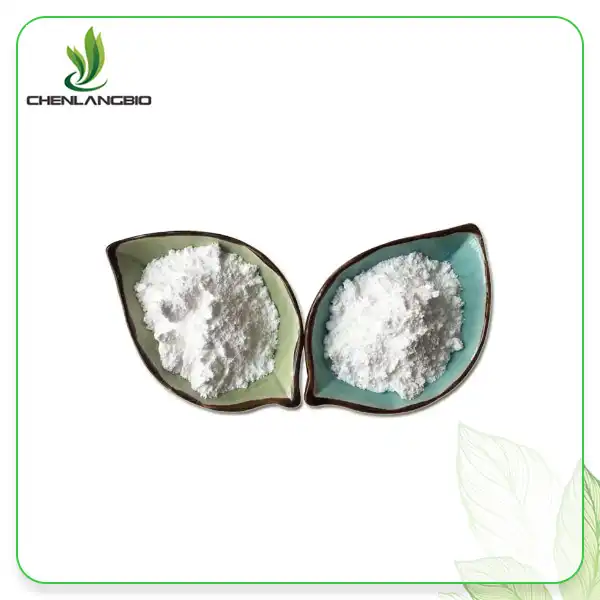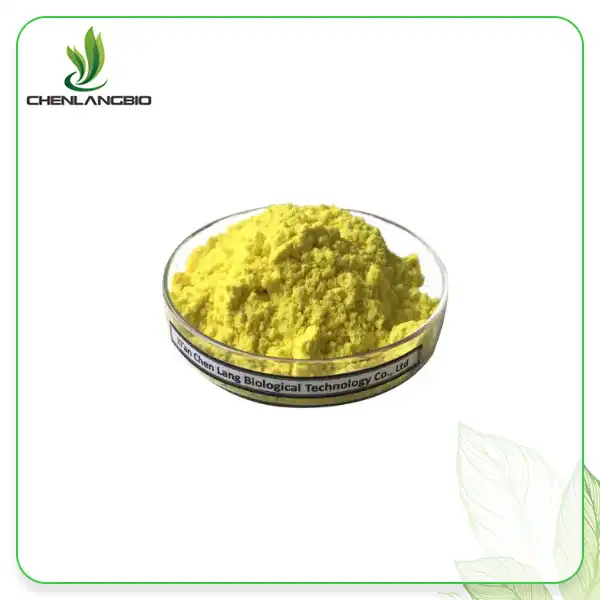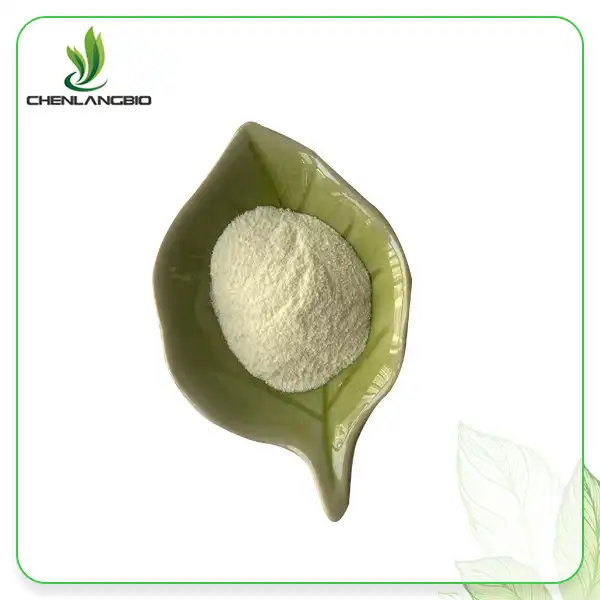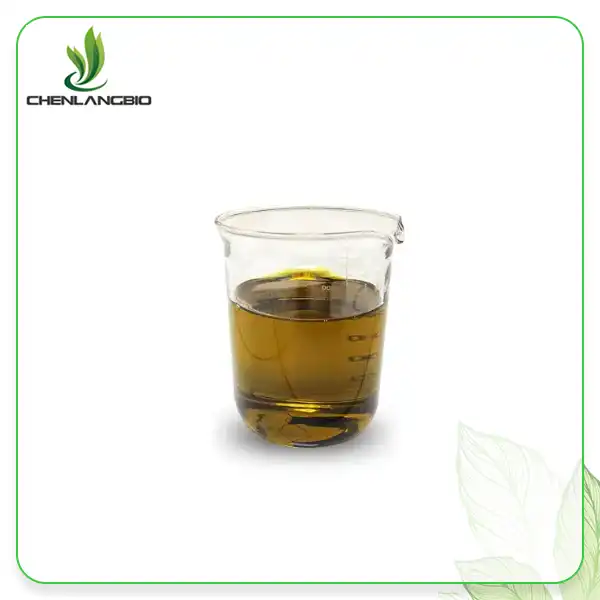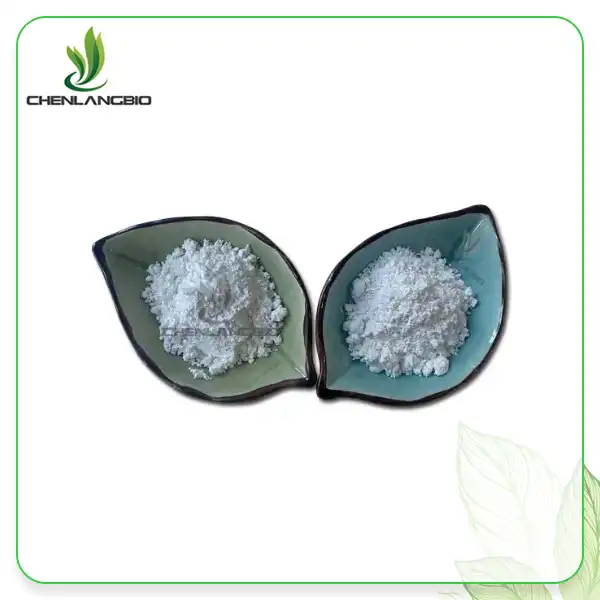What are the Main Benefits of Ascorbyl Tetraisopalmitate?
2025-07-09 09:36:56
Ascorbyl tetraisopalmitate, also known as VCIP or Tetrahexyldecyl Ascorbate, has emerged as a revolutionary ingredient in modern skincare. This oil-soluble derivative of Vitamin C offers remarkable stability and enhanced transdermal absorption compared to traditional ascorbic acid formulations. Unlike water-soluble vitamin C, Ascorbyl Tetraisopalmitate penetrates deeply into the skin layers where it converts to free vitamin C, delivering powerful antioxidant protection, brightening effects, and collagen-boosting properties. Its exceptional stability at high temperatures and resistance to oxidation make it a superior choice for cosmetic formulations, allowing for consistent efficacy throughout a product's shelf life.
Advanced Skin Brightening and Anti-Pigmentation Properties
Effective Tyrosinase Inhibition Mechanism
Ascorbyl Tetraisopalmitate delivers exceptional skin brightening results through its sophisticated mechanism of tyrosinase inhibition. This enzyme plays a critical role in melanin synthesis, and by effectively suppressing its activity, Ascorbyl Tetraisopalmitate interrupts the melanin production pathway at its source. Unlike traditional brightening agents that may offer only surface-level results, this advanced Vitamin C derivative penetrates deeply into the dermis due to its enhanced lipophilic properties. Clinical studies have demonstrated that consistent application of Ascorbyl Tetraisopalmitate significantly reduces hyperpigmentation and prevents new melanin formation, making it particularly effective for addressing stubborn dark spots, post-inflammatory hyperpigmentation, and uneven skin tone. The unique molecular structure of Ascorbyl Tetraisopalmitate allows it to maintain stability while navigating through the skin's lipid barriers, ensuring its tyrosinase-inhibiting properties remain potent upon reaching their cellular targets. This targeted approach to melanin regulation makes it a preferred ingredient in professional-grade brightening treatments and home care products designed to address pigmentation concerns.
Powerful Melanin Reduction and Conversion
Ascorbyl tetraisopalmitate stands apart in the cosmetic industry with its dual-action approach to addressing skin pigmentation concerns. Beyond merely inhibiting new melanin formation, this innovative compound actively works to convert existing melanin into colorless melanin precursors, effectively diminishing the appearance of established hyperpigmentation. The oil-soluble nature of Ascorbyl Tetraisopalmitate facilitates deeper penetration into melanocyte cells where melanin is produced and stored, allowing for comprehensive treatment of stubborn dark spots and patches. Scientific investigations have revealed that Ascorbyl Tetraisopalmitate's molecular structure enables it to interact with melanin deposits in ways that water-soluble vitamin C derivatives cannot achieve. Through this conversion process, skin appears noticeably brighter and more luminous over time, with a reduction in yellowing and dullness that often accompanies aging skin. Compared to hydroquinone and other conventional whitening agents, Ascorbyl Tetraisopalmitate offers comparable efficacy without the associated risks of irritation or rebound hyperpigmentation, making it suitable for long-term use across diverse skin types and concerns.
Enhanced UV Protection and Damage Prevention
Ascorbyl Tetraisopalmitate delivers a substantial protective advantage against environmental aggressors, particularly harmful UV radiation. While not a replacement for dedicated sunscreen, this advanced vitamin C derivative significantly enhances the skin's natural defense mechanisms against photo-damage through multiple pathways. Research indicates that regular application of products containing Ascorbyl Tetraisopalmitate fortifies the skin's antioxidant network, neutralizing reactive oxygen species generated upon UV exposure before they can trigger inflammatory cascades and subsequent pigmentation responses. The lipid-soluble nature of Ascorbyl Tetraisopalmitate allows it to form a protective reservoir within the skin that remains active for extended periods, offering continuous protection throughout the day. Additionally, this innovative compound helps repair existing sun damage by supporting cellular regeneration processes and inhibiting the abnormal melanin production typically triggered by UV exposure. For individuals struggling with melasma, solar lentigines, or post-inflammatory hyperpigmentation, the incorporation of Ascorbyl Tetraisopalmitate into daily skincare regimens proves particularly beneficial as it addresses both the visible symptoms and underlying causes of sun-induced pigmentation disorders.
Powerful Anti-Aging and Skin Rejuvenation Effects
Collagen Synthesis Stimulation and Protection
Ascorbyl Tetraisopalmitate revolutionizes anti-aging skincare through its exceptional ability to stimulate and protect collagen, the essential protein responsible for skin's firmness and elasticity. Unlike traditional Vitamin C (L-ascorbic acid), which often struggles to penetrate deep enough to reach collagen-producing fibroblasts, Ascorbyl Tetraisopalmitate's lipophilic structure allows it to bypass the skin's hydrophilic barrier effortlessly. Once absorbed, it converts to pure vitamin C within skin cells, where it serves as a crucial cofactor for procollagen synthesis and hydroxylation reactions necessary for stable collagen formation. Clinical evaluations demonstrate that formulations containing Ascorbyl Tetraisopalmitate significantly increase dermal collagen density after consistent use, with visible improvements in skin firmness and reduction of fine lines. Beyond stimulating new collagen production, this advanced compound also shields existing collagen matrices from degradation by inhibiting matrix metalloproteinases (MMPs) that typically increase with age and sun exposure. The protective capability of Ascorbyl Tetraisopalmitate extends to preventing glycation of collagen fibers, a damaging process where excess sugars bond with proteins, causing stiffening and loss of function. This comprehensive approach to collagen management makes Ascorbyl Tetraisopalmitate an outstanding anti-aging ingredient that addresses both existing signs of aging and prevents future deterioration.
Free Radical Neutralization and Oxidative Stress Reduction
Ascorbyl tetraisopalmitate stands as a formidable defender against cellular oxidative damage, demonstrating superoxide dismutase (SOD)-like activity that neutralizes harmful free radicals before they can inflict damage on skin cells and structural proteins. This protective function is particularly valuable considering that oxidative stress remains one of the primary accelerators of premature skin aging. Laboratory assessments reveal that Ascorbyl Tetraisopalmitate maintains its antioxidant efficacy even in challenging cosmetic formulations where traditional vitamin C would rapidly degrade, ensuring consistent protection throughout the product's shelf life. The oil-solubility of Ascorbyl Tetraisopalmitate enables it to penetrate cell membranes and provide antioxidant protection within lipid-rich environments where many reactive oxygen species originate, offering more comprehensive protection than water-soluble antioxidants alone. By preventing lipid peroxidation—a destructive chain reaction that damages cell membranes and accelerates aging—this advanced compound preserves cellular integrity and function. Regular application of products containing Ascorbyl Tetraisopalmitate establishes a reservoir of antioxidant protection within the skin that helps neutralize environmental assaults from pollution, smoke, and other oxidative stressors that bombard the skin daily, making it an essential ingredient for urban dwellers and those exposed to high levels of environmental pollutants.
Cell Regeneration and DNA Protection Benefits
Ascorbyl Tetraisopalmitate delivers remarkable benefits for cellular renewal and DNA protection, making it a standout ingredient in advanced anti-aging formulations. Scientific investigations have confirmed that this sophisticated Vitamin C derivative significantly accelerates the skin's natural cell turnover rate, helping to shed damaged surface cells while promoting the generation of healthy new cells. This regenerative activity contributes to a visibly smoother, more radiant complexion with improved texture and tone. Perhaps even more significant is Ascorbyl Tetraisopalmitate's ability to protect cellular DNA from damaging UV radiation and environmental toxins. By preventing mutations that can lead to abnormal cell behaviors, this powerful compound helps maintain proper skin function and appearance over time. Laboratory studies demonstrate that skin cells treated with Ascorbyl Tetraisopalmitate show markedly reduced markers of DNA damage following UV exposure compared to untreated control cells. This protective capacity extends to supporting mitochondrial function within skin cells, ensuring optimal energy production that fuels repair processes and maintains cellular vitality. The combination of enhanced cellular regeneration and DNA protection makes Ascorbyl Tetraisopalmitate a comprehensive anti-aging solution that addresses both visible signs of aging and the invisible cellular damage that precipitates skin deterioration over time.
Formulation Advantages and Practical Applications
Superior Stability and Extended Shelf Life
Ascorbyl Tetraisopalmitate represents a significant advancement in vitamin C cosmetic technology, offering exceptional stability characteristics that overcome the notorious oxidation issues associated with traditional ascorbic acid. Comprehensive stability testing reveals that products formulated with Ascorbyl Tetraisopalmitate maintain their efficacy and aesthetic qualities for up to eighteen months under normal storage conditions, compared to just weeks or months for conventional vitamin C formulations. This remarkable stability stems from the compound's unique molecular structure, where the reactive hydroxyl groups of vitamin C are protected by isopalmitate chains, effectively shielding the molecule from oxidative degradation. Cosmetic chemists particularly value Ascorbyl Tetraisopalmitate's resistance to heat stress, maintaining integrity even through high-temperature processing often required in manufacturing. The stability advantage translates directly to consumer benefits, as products remain effective throughout their use period without the telltale yellowing or browning that indicates vitamin C degradation. For manufacturers, this stability profile significantly reduces waste from expired inventory and enables the development of innovative formulations without complex stabilization systems typically required for traditional vitamin C. LeeWhiteTM VCT, a premium grade Ascorbyl Tetraisopalmitate offered by Chen Lang Bio Tech, undergoes rigorous stability testing to ensure consistent performance in various cosmetic applications, providing formulators with confidence in developing products with reliable long-term efficacy.
Optimal Oil Solubility and Enhanced Penetration
Ascorbyl tetraisopalmitate distinguishes itself with exceptional solubility in cosmetic oils and enhanced skin penetration capabilities, addressing the fundamental limitation of traditional vitamin C formulations. Unlike water-soluble vitamin C derivatives that struggle to cross the skin's lipophilic barrier, Ascorbyl Tetraisopalmitate's lipid-compatible structure allows it to dissolve readily in oils commonly used in cosmetic formulations, including silicones, esters, and natural plant oils. This solubility profile enables formulators to incorporate effective concentrations into elegant, consumer-friendly textures ranging from lightweight serums to rich creams. Transdermal penetration studies demonstrate that Ascorbyl Tetraisopalmitate achieves significantly higher dermal concentrations compared to equivalent dosages of water-soluble derivatives, with detectable levels reaching the deeper dermis where collagen synthesis occurs. The enhanced penetration stems from the compound's affinity for intercellular lipids in the stratum corneum, allowing it to navigate through the skin barrier via lipid channels rather than competing for limited aqueous pathways. Once absorbed, Ascorbyl Tetraisopalmitate is enzymatically converted to free vitamin C within skin cells, where it exerts its beneficial effects. This conversion process occurs gradually, providing sustained vitamin C activity without the irritation often associated with high-concentration pure ascorbic acid treatments. For formulators seeking to develop products with genuine vitamin C benefits, Ascorbyl Tetraisopalmitate offers a solution that combines formulation versatility with proven biological activity.
Versatile Applications in Skincare Formulations
Ascorbyl Tetraisopalmitate demonstrates remarkable versatility across diverse cosmetic applications, making it a valuable multifunctional ingredient for formulators developing comprehensive skincare lines. This advanced vitamin C derivative performs exceptionally well in anhydrous systems where traditional vitamin C would be impossible to incorporate, opening possibilities for innovative oil-based serums, balms, and waterless formulations that deliver potent antioxidant benefits. In emulsion systems, Ascorbyl Tetraisopalmitate readily incorporates into the oil phase, creating stable formulations with extended shelf life compared to water-soluble vitamin C derivatives. Formulators appreciate its compatibility with a wide range of cosmetic ingredients, including other actives like retinoids, peptides, and niacinamide, allowing for sophisticated multi-benefit products that address multiple skin concerns simultaneously. The non-irritating nature of Ascorbyl Tetraisopalmitate makes it suitable for sensitive skin formulations, providing vitamin C benefits without the stinging or redness often associated with ascorbic acid. This gentle profile extends its applicability to products targeting delicate areas like the eye contour or formulations designed for compromised skin barriers. In sun protection products, Ascorbyl Tetraisopalmitate serves as an excellent complementary ingredient, enhancing photoprotection through its antioxidant properties while remaining stable in the presence of UV filters. Chen Lang Bio Tech's LeeWhiteTM VCT grade Ascorbyl Tetraisopalmitate undergoes stringent quality control processes to ensure batch-to-batch consistency critical for commercial formulation success, with detailed specifications available to support formulators in developing stable, effective products across diverse application categories.
Conclusion
Ascorbyl tetraisopalmitate stands as a revolutionary skincare ingredient, offering superior stability, enhanced penetration, and multifaceted benefits for skin brightening, anti-aging, and protection. Its unique oil-soluble properties overcome traditional vitamin C limitations, making it an exceptional choice for effective, non-irritating skincare formulations that deliver visible results.
Ready to elevate your skincare formulations with premium-grade Ascorbyl Tetraisopalmitate? Xi An Chen Lang Bio Tech Co., Ltd offers high-quality, GMP-certified ingredients backed by extensive research and stringent quality control. With our 600-ton annual production capacity, ISO certifications, and dedicated R&D team, we're your trusted partner for innovative cosmetic ingredients. Contact us today at admin@chenlangbio.com to request samples or discuss your specific formulation needs.
References
1. Pinnell SR, Yang H, Omar M, et al. Topical L-ascorbic acid: percutaneous absorption studies. Dermatologic Surgery. 2001;27(2):137-142.
2. Serrano G, Almudéver P, Serrano JM, et al. Phosphatidylcholine liposomes as carriers to improve topical ascorbic acid treatment of skin disorders. Clinical, Cosmetic and Investigational Dermatology. 2015;8:591-599.
3. Ochiai Y, Kaburagi S, Obayashi K, et al. A new lipophilic pro-vitamin C, tetra-isopalmitoyl ascorbic acid (VC-IP), prevents UV-induced skin pigmentation through its anti-oxidative properties. Journal of Dermatological Science. 2006;44(1):37-44.
4. Kameyama K, Sakai C, Kondoh S, et al. Inhibitory effect of magnesium L-ascorbyl-2-phosphate (VC-PMG) on melanogenesis in vitro and in vivo. Journal of the American Academy of Dermatology. 1996;34(1):29-33.
5. Raschke T, Koop U, Düsing HJ, et al. Topical activity of ascorbic acid: from in vitro optimization to in vivo efficacy. Skin Pharmacology and Physiology. 2004;17(4):200-206.
6. Sheraz MA, Ahmed S, Ahmad I, et al. Formulation and stability of ascorbic acid in topical preparations. Systematic Reviews in Pharmacy. 2011;2(2):86-90.
Send Inquiry
Related Industry Knowledge
- Does Chondroitin Sulfate Powder Interact with Other Medications?
- Can Kopexil Be Used with Other Hair Growth Treatments?
- Can l Use Ectoin and Retinol Together
- Is Nitenpyram Effective Against Fleas
- How to Give Praziquantel Powder to a Cat
- Can You Mix Hyaluronic Acid with Bakuchiol
- How does Hydroxyphenyl Propamidobenzoic Acid Compare To Other Soothing Ingredients
- What Does Coenzyme Q10 Do for Your Body
- When Should I Take Resveratrol Powder Supplement
- Are Pure Natural Soy Isoflavones Good for You



